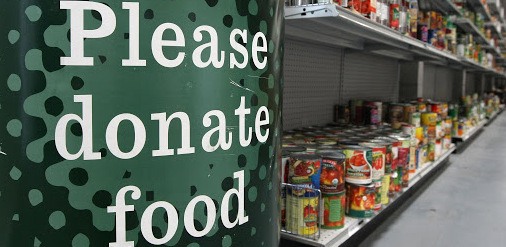Arkansas Extension Homemakers Council hopes to provide 1 million meals to address food insecurity
by April 30, 2020 1:36 pm 518 views

A statewide volunteer organization that ran soup kitchens during the 1918 Spanish flu pandemic is trying to feed people across the state in response to COVID-19. The Arkansas Extension Homemakers Council will attempt to raise enough money to provide one million meals to Arkansans struggling with food insecurity.
The council — one of Arkansas’ largest volunteer groups with more than 3,700 members statewide — is kicking off an online food drive to provide food for needy families. Donations can be made here. The group is partnering with six Feeding America Food Banks across Arkansas, many of which have seen spikes in food requests as Arkansans face unemployment and income loss amid the COVID-19 pandemic.
According to the Arkansas Hunger Relief Alliance, 17.3% of Arkansans were at risk of not knowing where to get their next meal and 23.6% of children were food insecure before the pandemic. Arkansas ranks near the bottom of all states in food insecurity only trailing Mississippi, Louisiana, and West Virginia.
“The need is now more critical than ever,” said Roberta Shankle of Hardy who is a member of the Hardy Country Ladies EHC and the statewide EHC meal drive coordinator. “We know many people are making do with less, and we ask people to just give as they feel led to give.”
Hunger can have a significant impact on a child’s physical and cognitive growth, according to the Centers for Disease Control. Children that are malnourished tend to be shorter and weigh less than their peers. Children from food-insecure homes have significantly higher instances of learning disabilities and have more compromised immune systems.
The council was already planning a statewide food drive before the pandemic. Last fall, the state’s 320 EHC clubs chose food insecurity as their statewide community service project and set a goal of raising enough money and collecting enough food to provide one million meals.
Meals will be tracked based on the buying power of the regional food banks, which buy large quantities of food, often for pennies on the dollar. At the Arkansas Food Bank, $1 provides five meals; at the Northwest Arkansas Food Bank, $1 provides as many as 10 meals.
Before the pandemic, clubs were hosting food drives and donating supplies to food pantries and hunger relief organizations. The Hot Springs County Extension Homemakers, for example, donated 5,000 boxes of cereal and $1,000 to the Arkansas Food Bank. Though face-to-face events are canceled, for now, EHC members hope their online crowdsourcing efforts will provide some relief to needy families.
Donations are routed to the food bank of the donor’s choice. Partnering food banks include the Arkansas Food Bank, Food Bank of North Central Arkansas, Food Bank of North East Arkansas, Northwest Arkansas Food Bank, Harvest Regional Food Bank and River Valley Regional Food Bank.
“By partnering with the area food banks, we can leverage our buying power,” Shankle said. “Ten dollars can buy a few items at your local store, but food banks can use that same $10 to purchase much more food, and that means more meals for needy families.”
The fundraising effort comes at a critical time, as food banks are seeing a surge in requests for services.
“During the spring of 2020, food banks have seen as much as a 50% increase in requests for our services,” said Jeff Quick, chief executive officer at the Food Bank of North Central Arkansas. “The COVID-19 crisis is unprecedented, and we anticipate an increased need for months, if not years to come, related to the economic impact of the crisis. The Feeding America Food Banks across the state are grateful for the support of the Extension Homemakers Clubs statewide. The support of these ladies will enable our food banks to serve thousands of Arkansans who are struggling with hunger and poverty.”
The Food Bank of North Central Arkansas, which serves 80 partner hunger relief organizations in nine Arkansas counties, is seeing more people who have lost their jobs or experienced a loss of hours and senior citizens and others who have difficulty accessing food through their local grocery stores and markets.
Children who depend on meals at school have also been especially hard hit during this time, Quick said.
“While 90% of our schools in Arkansas are providing grab-and-go meals, many children and their families have limited transportation that keeps them from accessing these meals,” he said.
The EHC clubs will continue fundraising through 2021, said Karen Bell Fox, AEHC president.
“We have an ambitious goal, and we’re committed to this,” Fox said. “We believe that working together in a group we can have a powerful impact in our communities and our state by helping get food into the hands of those among us who are struggling.”
Hunger relief has been an ongoing effort in Extension Homemakers for more than 100 years.
The clubs, formerly known as Home Demonstration Clubs, ran soup kitchens during the flu pandemic of 1918; they canned vegetables and donated surplus to families during the Great Depression, and they planted victory gardens to increase the food supply during World War II. Before the federal school lunch program began, EHC clubs were providing lunches for children in rural communities.
“Community service is one of the hallmarks of the Extension Homemakers Clubs,” said Laura Hendrix, associate professor at the University of Arkansas System Division of Agriculture Cooperative Extension Service and EHC advisor. “They see a need, and they take action.”
